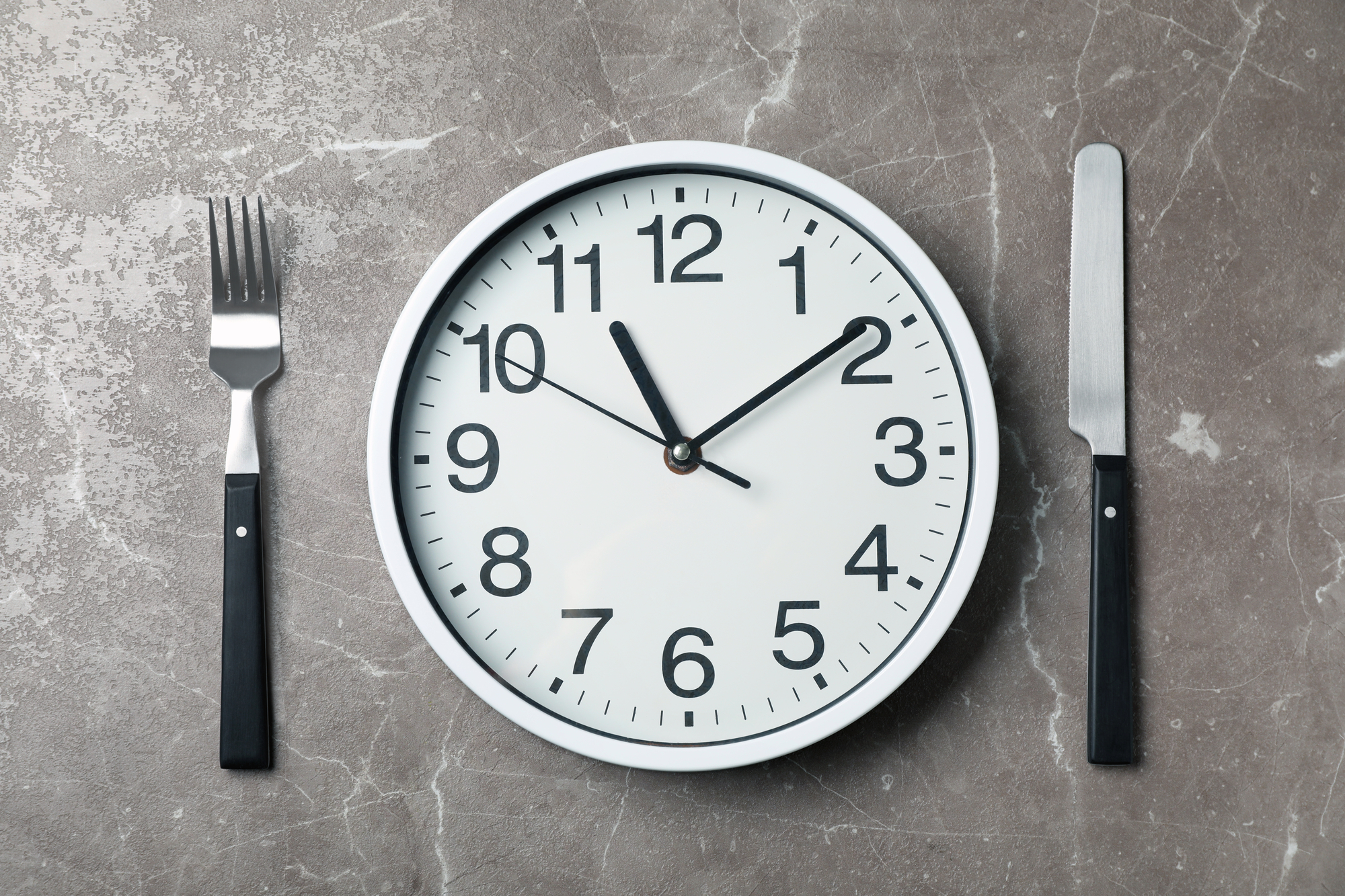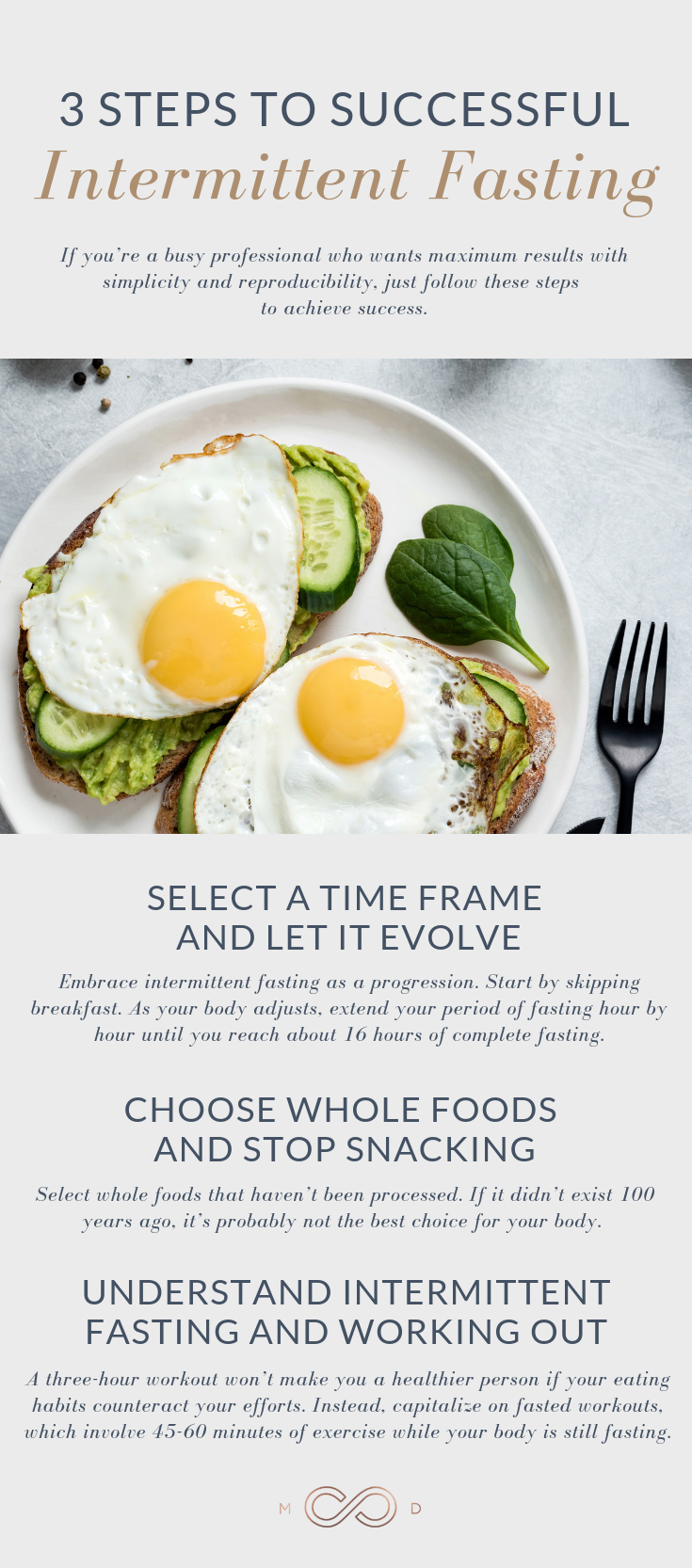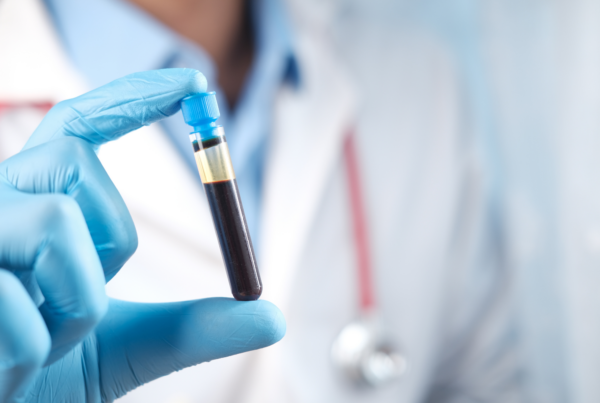Few people in the fitness industry impress me as much as Zane Griggs.
Zane launched his career as a fitness and weight loss coach in 1998 but quickly became disenchanted with the mainstream industry. The “standard” fitness principles he’d learned in school couldn’t deliver the results his clients sought. Zane realized that one hour of intense exercise with a trainer couldn’t undo 23 hours of poor eating choices.
This led Zane to examine the human response to food and prove that weight loss doesn’t just happen in the gym. Two decades later, Zane now harnesses the ideas of biology, biochemistry, physiology, and nutrition to help his clients achieve lasting weight loss, longevity, and optimal living.
Unfortunately, the weight loss industry is packaged to sell dietary advice separately from exercise advice. The two worlds rarely combine, leaving us at the mercy of misinformation and terrible advice.
We need to take a different approach, one that reduces our dependence on food. The secret weapon to weight loss, better health, and lasting vitality is hiding in plain sight: intermittent fasting.
What Is Intermittent Fasting and Why Does It Matter?
After experimenting with fasting for nearly a decade, Zane defines intermittent fasting as “any fasting within a day; a time-restricted eating window.”
The most popular intermittent fasting schedule sets a 16-hour fasting period and an 8-hour eating period. For example, you would eat dinner at 6:00 pm and fast until 10:00 am the next day. During your 8-hour eating period, you enjoy healthy whole foods that nourish your body and provide energy before fasting resumes.
Intermittent fasting forces the body to use sources of fuel other than glucose from your last meal or snack. This makes it easier to burn body fat and lose weight. Although most people experiment with intermittent fasting to lose weight, this strategy offers so much more. It can easily become your secret weapon to create an optimized version of yourself.
We don’t just want to live longer; we want to live better while we’re living longer. Life is more than the number of years you’re on this earth; it’s the vitality, energy, creativity, and joy you experience.
The Fed and Fasted Spectrum
Your body exists on a spectrum. On one end of the spectrum is your fully fed body with high blood sugar and insulin. On the other end of the spectrum is your fasted body with low blood sugar and low insulin.
You wake up every morning in a fasted state. As Zane explains, “Blood sugar is low and insulin is not up. Your body isn’t in storage mode so you can actually access body fat.”
As soon as you take a bite of breakfast, especially if it’s high in carbs, your blood sugar spikes and insulin arrives to process and transport the blood sugar. Your body no longer needs to burn body fat for energy because it has heaps of accessible glucose instead.
By keeping your blood sugar levels closer to the fasted side of the spectrum for more than 12 hours each day, you make it possible to burn excess fat and push your body into optimized health.
Is Breakfast The Most Important Meal of the Day?
So much of our daily routine revolves around food, but it wasn’t until the 20th century that humans even had the ability to overeat on a large scale. There wasn’t enough food available. Now, we live in a chronically overfed state. Industrialized agriculture has made it possible to access food whenever and wherever we want.
We eat right before bed, shortly after we wake up, and as soon as we feel the slightest pang of hunger. Most people never enter a fully fasted state, which means the body never burns fat as an energy source. This explains why nearly 100 million adults in the United States struggle with obesity.
This trend is especially evident in our widely held beliefs about breakfast. Most of us accept as fact that breakfast is the most important meal of the day. After all, it sounds like advice passed down from generation to generation.
Get ready for your world to shake. It’s actually “advice” from a Grape Nuts commercial in the 1970s.
In an attempt to sell more cereal, Grape Nuts influenced our entire culture of health and wellness. The brand’s marketing campaign infused a brand new idea until it was universally adopted as truth by Americans who assumed the advice predated its actual origin.
So what’s the real truth? The exact opposite of Grape Nuts’ clever marketing ploy. Your body is already fasting when you wake up. It’s working to achieve a biochemical balance that optimizes physical and mental function. Eating immediately ruins the effects of fasting and forces the body to start all over again. Skipping breakfast isn’t just “okay” or “allowed”, it’s one of the best choices you can make for your body.
The Biggest Lie About Your Metabolism
Aside from the importance of breakfast, the ideas spread about metabolism are some of the biggest lies in the modern fitness industry. Metabolism is basic biochemistry, so let’s dust off the textbook and find the truth.
You’ve probably been told that your body’s metabolism slows overnight and needs to restart at breakfast each morning. You’ve likely also heard that eating five or six times a day keeps your metabolism revved.
None of that is even close to the truth. Research shows that fasting boosts metabolism. Some metabolites increase as much as 60-fold when the body enters a fasted state.
Yet food and drug companies are persuasive, so we believe we need to eat every two to three hours “for the sake of our metabolism.” How does that make sense? Instead of helping to burn calories, our chronic state of overeating fuels disease that becomes profitable to treat with pharmaceutical drugs.
Our society’s entire focus has been placed on disease management instead of disease prevention or elimination. It all begins with what we put in our mouths, and more importantly, when.
The Real Effects of Insulin on Fat Burning
As soon as you eat, insulin travels into your bloodstream to transport rising blood sugar levels into cells that use blood sugar as energy. This critical process prevents the dangerous high blood sugar levels that lead to diabetes, but it doesn’t help you lose weight.
Research shows that insulin blocks fat burning. There’s no way to biochemically burn fat when insulin is present or elevated. Every doctor must know this to pass the medical licensing exam, but they soon forget its true impact on human health.
All of this means that insulin supports the creation of fat. If you eat immediately before a workout, the only calories and blood sugar you burn come from what you just ate. You never tap into belly fat, visceral fat, or excess fat in other areas of the body.
Benefits of Intermittent Fasting
Intermittent fasting is quickly becoming a health trend, which is good news for the wellness of our entire society!
Any method of eating that protects normal, stabilized blood sugar levels and limits exposure to insulin is the best answer. This is why so many people want to try intermittent fasting using a 16-hour fasted window and compressed 8-hour feed window. It only takes that relatively small fasting period to increase fat burning and improve body function.
Yet intermittent fasting offers many other valuable benefits beyond weight loss. By controlling blood sugar and insulin, you may protect your body from cancer.
Zane describes the dangers: “So many cancers are insulin sensitive and insulin causes the growth of those. Colon and breast cancer alone are highly reactive to insulin. When you have insulin, insulin, insulin, you have an overgrowth of cancer.”
Other recognized benefits of intermittent fasting include:
- Optimize Function of Cells and Hormones
- Long Term Health Improvements
- Appetite Control
- Reduce Insulin Resistance and Diabetes
This method is powerful because it allows the body to thrive without the burden of high blood sugar and insulin dependency. Once those issues are out of the way, the body embraces its natural instincts for optimal health.
How to Fast Successfully
Intermittent fasting shouldn’t feel complicated or demanding. If you’re a busy professional who wants maximum results with simplicity and reproducibility, just follow these steps to achieve success.
Select a Time Frame and Let It Evolve
You don’t need to become a fasting expert overnight. Embrace intermittent fasting as a progression. Start by skipping breakfast. As your body adjusts, extend your period of fasting hour by hour until you reach about 16 hours of complete fasting.
Zane’s personal preference is to fast until about noon, then enjoy a couple healthy meals until 7:00 pm. Sometimes his fasting periods fluctuate with his schedule, but he always makes sure to give his body the time it needs to thrive in an optimal blood sugar state.
Zane also recommends one 24-hour fast every week to optimize results and keep your body consistent. You may need months or even years before you feel ready for a 24-hour fast, and that’s okay!
Choose Whole Foods and Stop Snacking
Despite what the media will have you believe, eating healthy isn’t complicated. You don’t need charts, graphs, and Pinterest images to separate good from bad.
“What I do is, I focus on what is going to be the most beneficial for me? I’m hungry going into the meal, but I’m not starving or trying to replace what I didn’t eat all day. I’m looking at a healthy protein source, a lot of greens, maybe some healthy fats and fiber,” describes Zane.
Select whole foods that haven’t been processed. “You’re just eating later and making good choices and giving your body the best nutrition you can,” Zane says. If it didn’t exist 100 years ago, it’s probably not the best choice for your body. Draw inspiration from the Mediterranean, Atkins, and Ketogenic models to find the foods your body craves.
Understand The Connection Between Intermittent Fasting and Working Out
A three-hour workout won’t make you a healthier person if your eating habits counteract your efforts. It makes more sense to capitalize on fasted workouts instead. Fasted workouts involve 45-60 minutes of exercise while your body is still fasting.
Working out during a fasted period creates metabolic stress. If your body doesn’t have immediately accessible blood sugar to use as energy, it starts using fat instead. This increases blood flow to muscles and triggers a hormonal response for muscle growth. As a result, your muscles become “spring loaded” for growth when you break your fast.
Don’t Ask What to Eat, Ask When
I asked Zane to choose the one question he wished his fitness clients would ask more. His answer speaks volumes.
“People are asking, ‘What diet should I follow? Do I do Keto? Low carb? Mediterranean?’ What they’re not asking is when they are supposed to be eating! If you get when to eat down, you have so much more margin on what you eat.”
If you want to learn more about Zane Briggs and his inspiring intermittent fasting expertise, you can find him here. He’s not a brand, he’s a real person dedicated to helping his clients achieve optimal health.

Dr. Aaron Wenzel is a concierge physician specializing in the care of fast-moving entrepreneurs, executives, and public figures in the Nashville, TN area. Dr. Wenzel’s diverse life experience and extensive training in family medicine, emergency care, nutrition, and hormone replacement therapies give him the unique platform to provide unmatched care for his patients.








